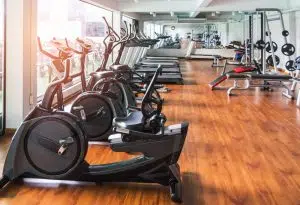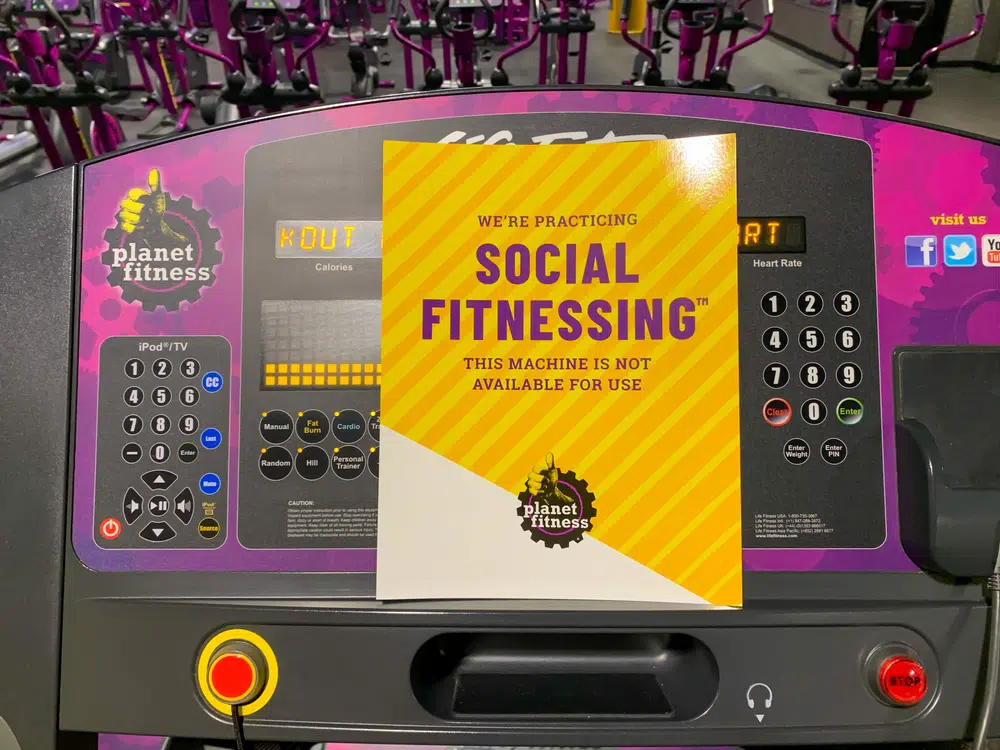
In addition, fitness centre owners must also ensure that their premises are covered by appropriate insurance. This will protect them from any claims that may be made against them in the event of an accident or injury occurring on their premises.
Finally, it is also important to be aware of any planning restrictions that may apply to the area in which the fitness centre is located. Failure to comply with these restrictions could result in enforcement action being taken against the centre by the local authority.
Fitness centres are subject to multiple types of legislation. Licensing, sunbeds, and employees are some of the topics they cover.
What licences does a fitness centre need?
A fitness centre’s licenses and registrations will depend on the activities it performs and the services it provides. Licensing is required for the following activities:
- You must register your business with the local authority’s environmental health department if you sell or prepare food on the premises
- You must obtain an ‘Exercise to music’ licence from PPL if you use copyright recorded music in fitness classes. Members of ukactive can qualify for a discount on this licence based on the number of fitness classes they run in a year. Despite the fact that you may hire freelance instructors to teach exercise-to-music classes at your centre, since the rules changed in 2013, you still need this license. For individuals who wish to copy music to a variety of formats and devices and use this music for professional or semi-professional purposes, such as a fitness class, a PRS for Music ProDub licence is required (unless all the music is purchased from a company with a PRS for Music ‘Fitness Music Services’ licence, which does not require a ProDub licence).
- For background music in the changing rooms, workout areas, or restaurant, you’ll need to obtain an additional license from PPL PRS Ltd.
- TV Licensing will require a television licence if television programs are shown in fitness rooms or communal areas. To screen films and TV shows, you’ll need an MPLC licence
- The Information Commissioner’s Office may require you to register as a data user if you keep computerised records of individuals’ personal information and/or use CCTV
You should be aware of the following if your fitness centre offers spa and beauty services:
- Electrolysis and piercing are examples of treatments that require registration with the local health department if they are likely to cause cross infection
- To find out whether you need a license if you offer beauty treatments, contact your local environmental health department
- You must register with the Regulation and Quality Improvement Authority (RQIA) in Northern Ireland if you offer laser or intense pulsed light treatments. Healthcare Inspectorate Wales (HIW) is the registering authority in Wales. If you live in England or Scotland, you don’t need to register
Unfair terms in contracts
You should avoid including unfair terms in your contracts with your members. From the Gov.uk website, you can download ‘Guidance on unfair terms in health and fitness club agreements’ published by the Competition and Markets Authority (CMA). The Trading Standards Business Companion website also provides guidance on consumer contracts.
Sunbeds
Centres that offer sunbeds may be required to register and/or be licensed by local authorities. To ensure that you comply with health and safety regulations, they may impose restrictions on your operation and inspect your premises.
Customers and staff should be protected from the potentially damaging effects of UV radiation as much as possible. Hazardous waste regulations must also be followed when disposing of spent tubes.
You must install and maintain your sunbeds and any other electrical equipment you use professionally to ensure their safety for customers and employees. If any problems are discovered, you should have a system for repairing them.
Substances hazardous to health
By preventing or controlling exposure to hazardous substances, you have a duty to evaluate all risks. An exercise club may contain hazardous substances like swimming pool chemicals, cleaning materials, and beauty salon materials like bleaches, dyes, nail polish remover, etc.
Employees
Any employee instructing or demonstrating exercises at your club must be qualified according to national occupational standards if your club is a member of ukactive.
Your instructors must be registered with the Register of Exercise Professionals if you intend to refer patients to the exercise referral scheme. As a result, they need to be properly qualified.
Health & Safety, fire
Health and safety regulations at work must be followed, as well as fire safety legislation.
It is your responsibility to ensure the safety of members and other people using the centre as far as is reasonably possible. A risk assessment, the use of qualified lifeguards, supervision, and management of swimming pool facilities, and maintaining facilities and equipment to meet required standards may all be included in this process. Pool operators may obtain qualifications in life guarding skills and pool management through the Swimming Teachers’ Association.
Health and safety legislation must also be followed. Occupational health and safety encompass all aspects of the workplace. Ensure the health and safety of all employees at work is a duty of employers. A written health and safety policy statement must be prepared by employers with five or more employees. To receive advice and guidance, contact the health and safety section of your local authority.
Employment legislation
Employment legislation must be followed by anyone who employs staff. Employment legislation, pay, working hours, holidays, sick leave, maternity leave, paternity leave, discrimination, discipline, grievances, dismissals, and redundancy proceedings are all important areas of legislation.
Insurance for a fitness centre
Insurers or brokers can tell you what insurance coverage you must have by law and what other coverage you should consider as you start your business. The following might be included:
- Premises, contents, and stock
- Transported goods
- Money
- Business interruption
- Employer’s liability
- Public liability
- Product liability
- Motor insurance
Use an insurance comparison form to uncover the differences between policies when comparing quotes.
Conclusion
Fitness centres must be aware of the legal issues they face which range from ensuring all activities are safe, ensuring their premises are safe and abiding by relevant laws. Important issues such as insurance and health and safety regulations must also be taken into consideration to avoid legal repercussions. Legal matters such as working hours and rest breaks for employees should also be addressed, as should the collection and storage of personal information on employees, customers, suppliers and other third-parties.
By being fully aware of the variety of legal matters applicable to their business model and environment, a fitness centre can better prepare for any potential legal issues in future.
Lee Jones is a seasoned Business Finance Specialist with over two decades of invaluable experience in the financial sector. With a keen eye for market trends and a passion for helping businesses thrive, Lee has become a trusted advisor to countless organizations seeking to navigate the complexities of finance.


